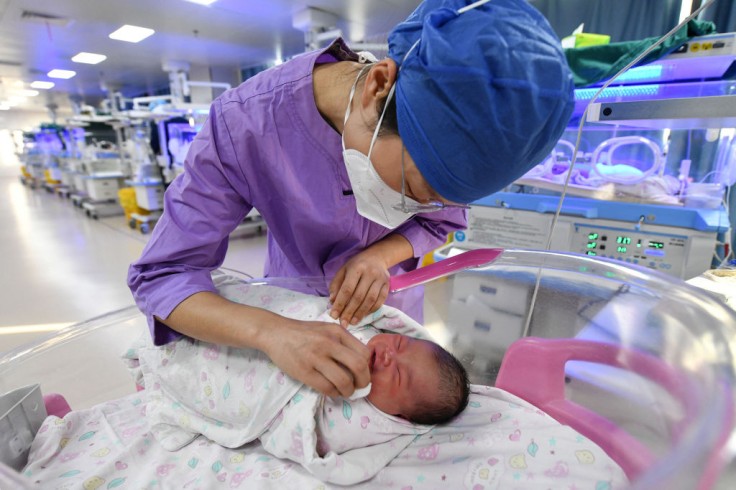
China is grappling with a significant demographic challenge as its record-low fertility rate drops to an unprecedented low of 1.09 in 2022.
This alarming statistic is likely to send shockwaves through the Chinese authorities, who are actively seeking ways to reverse the decline in the country's birth rate.
China's Population and Development Research Center confirmed the nation's fertility rate to be the lowest among countries with populations exceeding 100 million.
Urgent Measures Implemented to Address China's Declining Birth Rate
As China faces its first population decline in 60 years and confronts the implications of a rapidly aging society, the government has swiftly implemented a series of measures aimed at boosting birth rates.
Among these measures are financial incentives for families to have more children and improved childcare facilities to ease the burden on working parents.
President Xi Jinping took a personal interest in the matter, presiding over a high-level meeting in May to delve into potential solutions.
The Chinese government's strategy includes a focus on bolstering education, science, and technology to enhance population quality. It also aims to maintain a "moderate fertility" rate that can sustain future economic growth.
Societal Factors Contributing to China's Fertility Decline
The record-low fertility rate is not solely a result of economic factors. High childcare costs and the dilemma of women having to choose between their careers and motherhood have led many to delay or forgo having children altogether.
Gender discrimination and traditional stereotypes that place the responsibility of childcare on women remain pervasive in Chinese society.
While authorities have attempted to shift this narrative by emphasizing shared responsibilities in child-rearing, the availability of paternity leave remains limited across most provinces.
The decline in fertility is not a standalone issue; it places China alongside other nations such as Singapore, Taiwan, South Korea, and Hong Kong, all grappling with the challenges of low birth rates and an aging population.
According to analysts, the broader economic context casts doubt on the efficacy of financial and employment initiatives, while workplace bias against mothers continues to persist.
Recent research conducted by scholars from Zhejiang Sci-Tech University, involving a survey of 2,459 students, revealed that 30% possess a pessimistic view of marriage.
The study unveiled a significant shift in perspective, as numerous students no longer perceive marriage as an inescapable trajectory and view it as just one avenue to parenthood.
Additionally, students are of the opinion that the conflict between nurturing a career and raising children presents a formidable challenge.
Read Also: Florida Amusement Park Horror: Six-Year-Old Injured After Roller Coaster Fall at Fun Spot
Hong Kong's Alarming Trends Reflect a Broader Issue
The concerns are not confined to mainland China. The Hong Kong Family Planning Association also highlighted that the number of childless women in the special administrative region more than doubled over the past five years, reaching a staggering 43.2% last year.
Additionally, the percentage of couples with one or two children has markedly decreased.
The average number of children per woman plummeted from 1.3 in 2017 to an all-time low of 0.9 last year, as per the association's survey.
The challenge of reviving birth rates is a complex issue intertwined with economic, social, and cultural factors.
As China grapples with the consequences of an aging population and a shrinking workforce, authorities face the daunting task of devising effective strategies to encourage families to have more children.
The steps taken in the coming years will significantly impact the nation's future socioeconomic landscape.